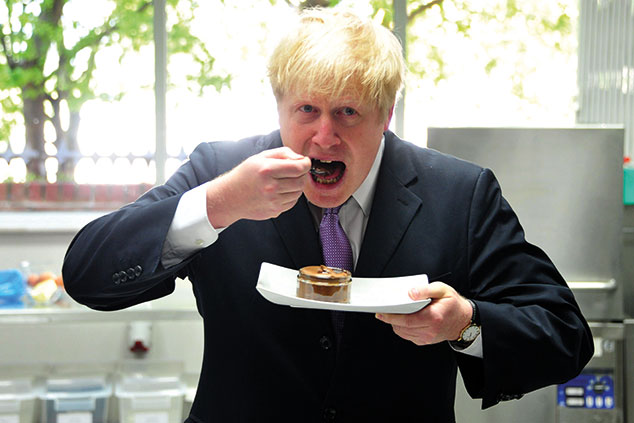
Its feasibility will be tested when, “as seems inevitable”, he becomes prime minister after winning the Conservative Party leadership election. His “cakeist campaign” insists he can secure a better Brexit deal within months, and that even if he can’t, a no-deal Brexit would be “vanishingly inexpensive if you prepare”, a view vigorously contested by experts.
The pound slumped following a hustings on Monday night, at which both Johnson and his rival, Jeremy Hunt, ruled out any compromise on the issue of the Irish backstop, including a time limit or unilateral exit clause, increasing the likelihood of a no-deal Brexit on 31 October, say George Parker,
Jim Brunsden and Arthur Beesley, also in the FT. The “central flaw” of Johnson’s plan is that Brussels has already said that it will not countenance a deal that does not include the Irish backstop.
A risky strategy
Johnson’s “principal objective” was to secure any last remaining votes; friends say that he will distance himself from this strategy once he is at No. 10. If so, this is a “risky strategy”. More than 30 hardline eurosceptic Tory MPs have taken note of his plan (to disaggregate Theresa May’s withdrawal treaty, get rid of the Irish backstop and suspend Britain’s £39bn “divorce” payment to the EU while a free-trade agreement is negotiated) and will “exact merciless revenge if he lets them down”.
On the other hand, there are plenty of Tory MPs who are vehemently opposed to a no-deal Brexit, says Jessica Elgot in The Guardian, and some may be prepared to vote against their government, even if it means losing the whip, being deselected and bringing down their own administration. Johnson’s working majority in the Commons is also likely to be reduced to three if the Liberal Democrats win the Brecon and Radnorshire by-election on 1 August.
It is still “theoretically possible” to avoid a no-deal Brexit on 31 October, says The Times, but even Dominic Grieve, the former attorney general who is “leading backbench efforts to block no deal”, has conceded that Parliament is running out of legislative options. A vote of no confidence may be the only answer, but time is running short. The last date for Parliament to trigger a new election before 31 October is 3 September. The only way that even a vote of no confidence could stop a no-deal Brexit beyond this date would be for Parliament to “coalesce behind a cross-party national government under a different prime minister”.
Given the “deep divisions” between, and within, the Tory and Labour parties, this seems unlikely. A general election may happen even in the event of no deal. With Johnson in power and Brexit delivered, Nigel Farage’s Brexit Party would be neutered, the Lib Dems no longer able to campaign for Remain, and the opposition party would be “engulfed” in civil war over Jeremy Corbyn. Johnson may fancy his chances. “The country should brace itself.”
As for a no-deal Brexit, if it does happen, Johnson’s hopes that it will awaken the “Blitz spirit” and unite the country may well prove misguided, says Parker. If it is forced through Parliament, half the country will see Johnson, not the EU, as the “villain”. Angry demonstrations are likely to follow, and Johnson could end up as a “British version of Marie Antoinette – a French queen, infamous for an ill-advised remark about cake, who met a sticky end”.